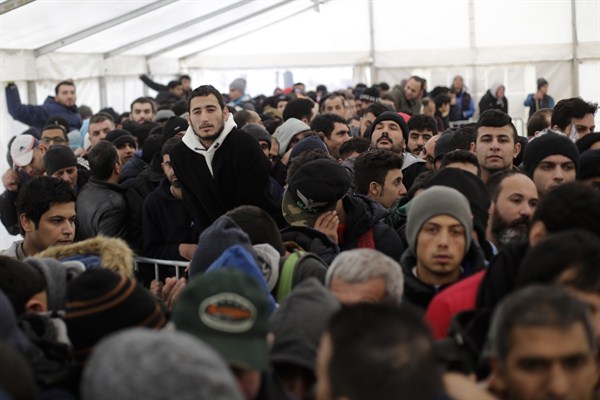European leaders are meeting in Brussels on Thursday and Friday for the final European Union summit of 2015. Dominating the agenda is the refugee crisis. As of Dec. 17, more than 956,000 migrants, including refugees, have arrived in Europe by sea this year, according to the International Organization for Migration. The EU and its member states are still struggling to develop a common response.
The latest idea, proposed by Germany and France earlier this month, is to create a standing, 2,000-member strong EU border and coast guard force. But like every other EU response to the refugee crisis, that has been met with mixed reactions. As I wrote last week, “Member states have historically been reluctant to give up any amount of control over their borders. However, given the unprecedented scale of the current migrant crisis—Germany alone has registered over 1 million refugees—the European border force could become a reality.”
European Commission President Jean-Claude Juncker has defended the idea, telling the European Parliament on Wednesday: “We want to defend everything that Schengen represents,” referring to the agreement, originally signed in 1985 and supplemented in the 1990s, that allows for visa-free travel among its now-26 European signatories. But Poland’s foreign minister spoke out against the border guard proposal, expressing concern that European bureaucrats could take control of national borders.

